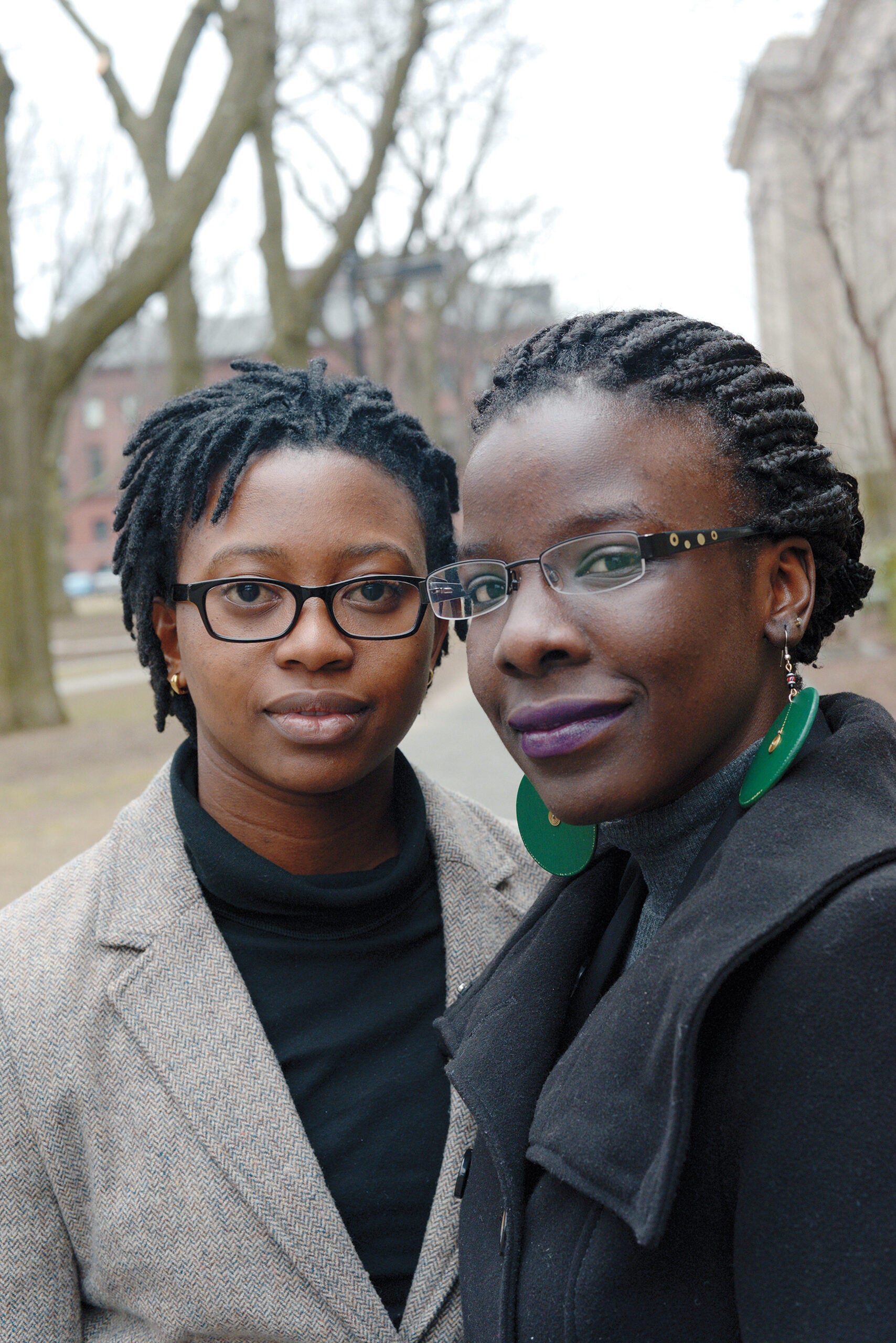As activists for LGBT rights in Uganda, Susan Mirembe Nalunkuma LL.M. ’15 and Godiva Akullo LL.M. ’15 have not chosen an easy path.
They’ve been called names, including by some of their university teachers, and been shunned by other students, even those who support their work but are afraid to do so openly. “We had classmates saying: ‘You’re being paid by Western powers to kill African culture. You are spreading immorality,’” says Nalunkuma. “We did not have it easy, but many had it worse.”
Uganda is among the harshest nations in its treatment of homosexuals. In 2009, American evangelical preachers helped Ugandan legislators draft a law that called for the death penalty for homosexuals, and attacks against gays spiked. In 2011, one of Uganda’s best-known gay-rights activists was beaten to death with a hammer.
Born and raised in Kampala, the childhood friends became involved in LGBT rights when they matriculated at Makerere University in 2009, intent on becoming lawyers. Interested in human rights, they interned at a consulting firm, under the direction of one of their professors, a constitutional law attorney, Busingye Kabumba LL.M. ’08, just as Uganda’s harsh anti-homosexuality bill was proposed. Nalunkuma and Akullo soon found themselves researching efforts to oppose the law on grounds it violated the constitutional requirement for separation of church and state. The law, which made certain homosexual acts punishable by life imprisonment, was enacted in 2013. It was overturned on technical grounds, but a new version is expected to be proposed in the Parliament.
Susan Mirembe Nalunkuma and Godiva Akullo recall teachers who have guided their activism. they now hope to play that role for others.
Through Kabumba, the two students met other human rights activists in Uganda, and also studied under an outspoken proponent of LGBT rights, Sylvia Tamale LL.M. ’88, former dean of the school of law at Makerere. Over the next four years, Akullo and Nalunkuma expanded their efforts, working through the university’s first legal aid clinic on a case against Uganda’s minister of ethics and integrity for shutting down a gay-rights conference. Nalunkuma also worked with Sexual Minorities Uganda, an NGO based in Kampala, to help provide information and support to LGBT people and organizations.
The more involved they became in the work, the more scrutiny they received. After their faces appeared on TV news during the lawsuit against the minister of ethics, administrators at their former high school called a school assembly and warned girls headed to university to avoid the pair. “And they mainly have, and we completely understand why,” Akullo adds.
At the same time, they have been quietly approached by a number of students who support the LGBT movement and thank them for their efforts. More importantly, they say, queer students—kicked out of their families, ostracized by friends—have turned to them for advice on where to get legal and other help.
“And we’ve had a good number of professors who respect … the work we do,” says Nalunkuma, adding, “I would say most opportunities I’ve been exposed to in the past few years have been because of my work with the movement.”
After passing the Ugandan Bar, the two headed to HLS, drawn by the school’s international reputation. “Credibility is important when you’re doing work of this nature,” says Nalunkuma.
This semester, in addition to studying under HLS Visiting Professor Catharine A. MacKinnon, a renowned activist in the area of gender equality and rights, Nalunkuma has taken the Transactional Law Clinic. Akullo made a point of taking international trade law, she says, because trade sanctions are so often used to force governments to comply with basic human rights; the U.S. and other nations cut their aid to Uganda when its harsh law was imposed.
At HLS, the two have basked in the freedom to concentrate on their studies without fear. “It feels like your mind is free to be creative. When I wake up in the morning, I can think about some idea—something other than just survival instinct,” says Nalunkuma. She adds, “I didn’t realize how much stress we were under.”
Both students see the decriminalization of homosexuality as an essential step toward other basic rights for the LGBT community. Akullo notes that while she appreciates outside support, it can lead to a backlash against LGBT activists in Uganda. “The international help can be overzealous in certain situations,” she says. “I think with any assistance being offered, the first question asked should be, ‘What help do you need, and how can we help you achieve your goals?’ Because if, at the end of the day, activists in Uganda are pursuing one course of action, and international activists are doing the exact opposite, then it makes the work even harder.”
She and Nalunkuma hope to become university professors—in Uganda or elsewhere in Africa—as they continue their advocacy. “I know I was influenced a lot by my professors,” says Akullo. “I really want to have the opportunity to be that person in someone else’s life.”
“Our activism is never going to stop,” she adds. “It’s not a 9-to-5 job.”
